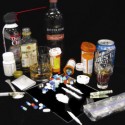Just How Long is Long-Term Treatment?
You’ve tried outpatient treatment, you’ve tried inpatient treatment and now you’ve been recommended for “long-term” treatment, but just how long is long-term treatment anyway and what makes it so much more effective than the programs you’ve already tried?
Various recent studies have been conducted to come to the conclusion that long-term treatment is often the solution for those who find themselves bouncing from one 30 day rehabilitation program to the next, seemingly always relapsing within a few days, weeks or months each time in between. The National Institute on Drug Abuse recommends anyone who is addicted to drugs or alcohol to spend at least 90 days in treatment but many programs offer 30 day plans that are generally not effective.
So What is Long-Term Treatment?
At one time, 90 day treatment programs that took place in a residential facility were considered long-term but those days have long past. Today, long-term treatment is the standard used to define programs that are at least 6 months or 180 days long and may span up to a period of two years. Some programs may define themselves as providing long-term residential treatment but then offer you a 90 day plan of recovery. While 90 days is the “gold-standard” in treatment these days, for someone who has relapsed many times already, it’s important to recognize that drug addiction is a chronic disease that is plagued my many instances of relapse. In this case, a long-term treatment program of at least 90 days but preferably longer may be necessary.
How it Stacks Up
So how does a typical long-term treatment program stack up against a 30 day plan? Here’s what you can expect:
- Detox that does not take up the entire or the majority of your treatment. For many people, especially those who are addicted to prescription medications, detox is the dominant period which takes up to 30 days of the entire recovery process. In a standard 30 day treatment plan, that leaves no time for psychological healing and recovery which is most certain to lead to relapse. Long-term treatment programs provide patients with months of psychiatric recovery following detox—even when detox takes 30 days to complete.
- Adequate time for new habits to be formed and to take root. Studies show that it takes 90 days to learn and acquire a new habit—be it a good habit or a bad habit. Look at drug rehab as a way of learning good habits. As these good habits are learned, they can out-weigh the bad habits over time. The new, good habits will take 90 days before they fully set in so it’s important to take part in a recovery program that includes at least 90 days of not using drugs or alcohol and taking part in new, good habits.
- Time for the identification of co-occurring disorders. Many addicts suffer from other mental or physical health conditions that take time to detect. A standard 30 day treatment plan may not provide adequate time for the identification of these disorders and if it does, it probably won’t provide enough time to treat the addiction and the co-occurring disorder. Since about half of all those who are addicted to drugs or alcohol also struggle with a dual diagnosis such as another addiction or a mental illness, it’s important to provide adequate treatment for both.


